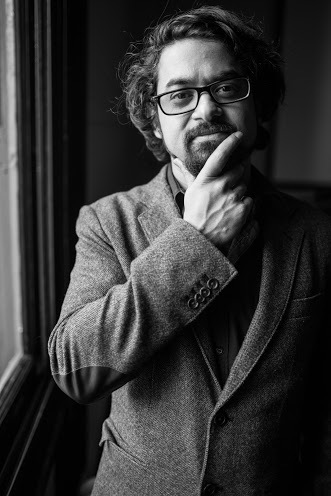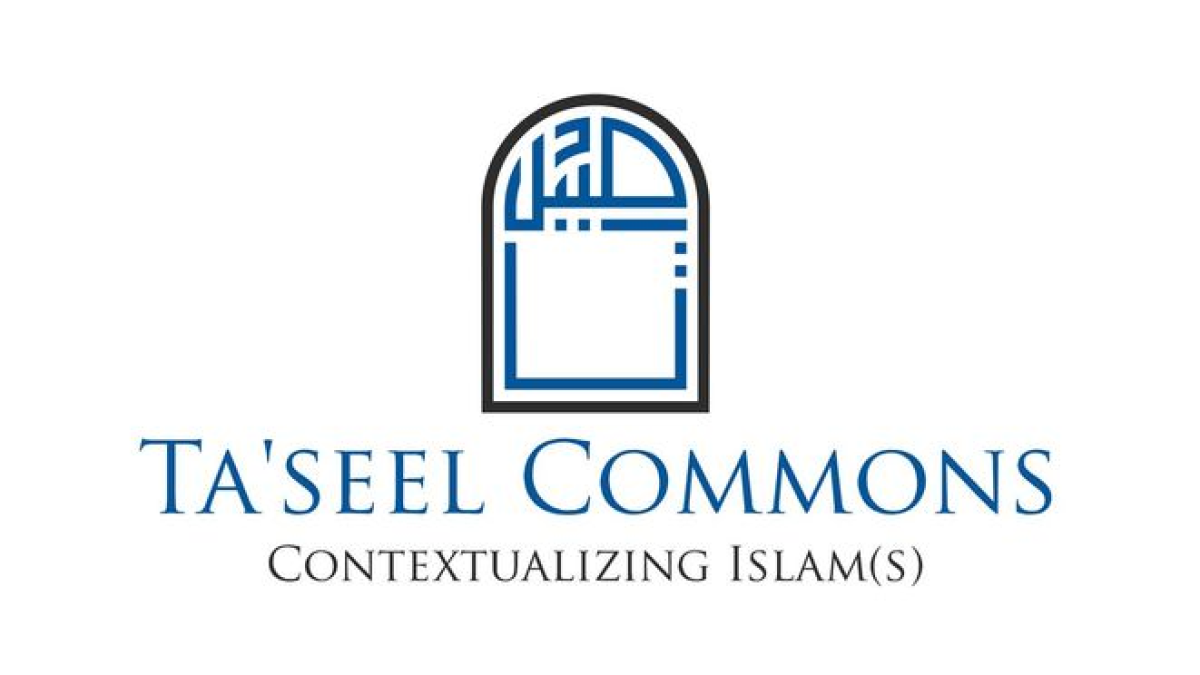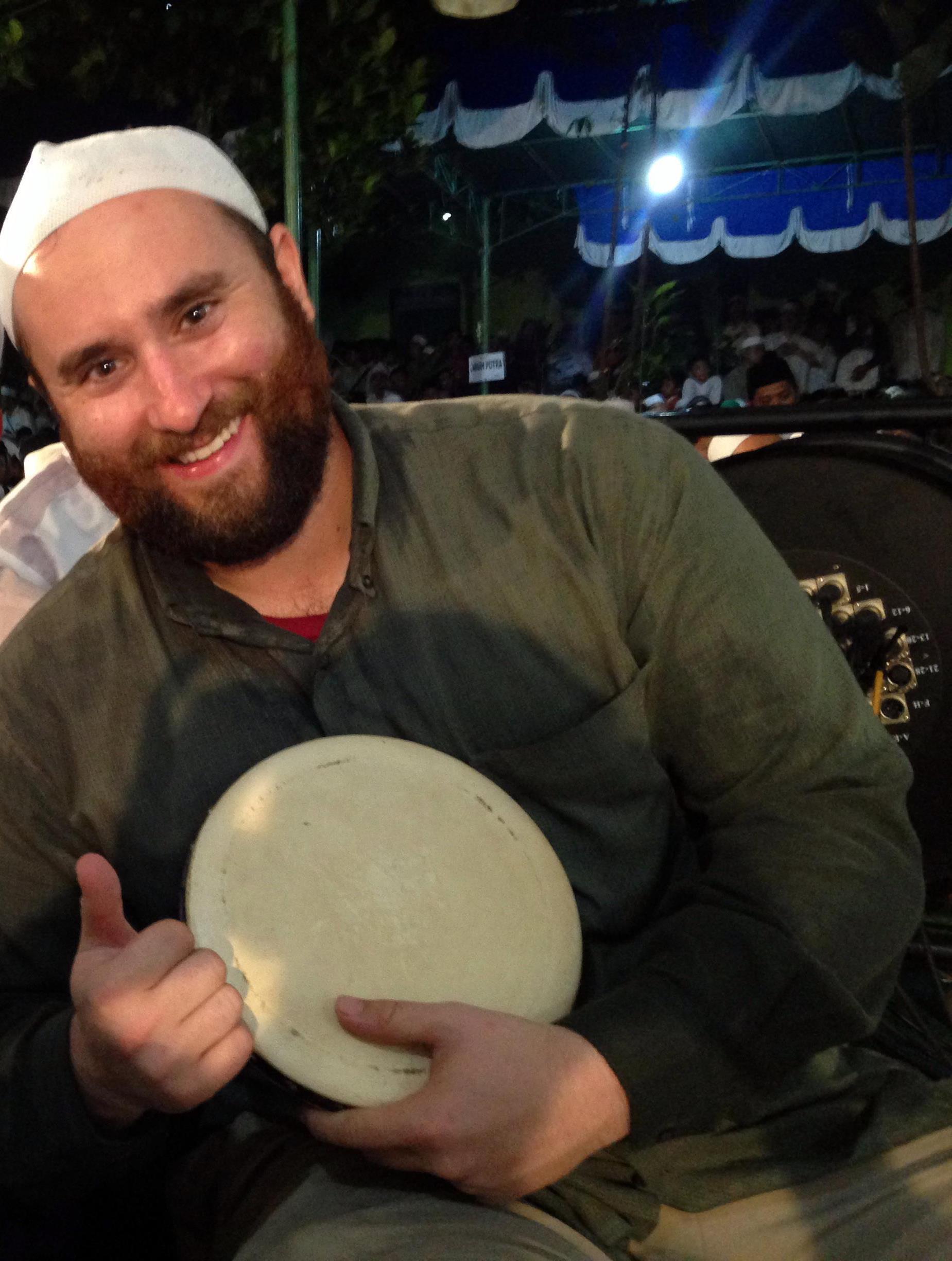The digital age has revolutionized the way society intakes and produces knowledge. When it comes to contextualizing a religion in today’s world, online platforms can be a wonderful place to start.
James Edmonds, a doctoral student studying the anthropology of religion at Arizona State University, is working on an online journal dedicated to the contextualization of Islam and Islamic thought in the current world.
The journal is aptly named Ta’seel Commons — Ta’seel means contextualization or to give a root to. Edmonds has joined the founder of the journal, Hasan Azad, to provide high-quality content for the mainstream reader by utilizing a mix of academic and journalistic approaches.
“I got involved this past summer,” said Edmonds, a first-year doctoral candidate in the School of Historical, Philosophical and Religious Studies. “Hasan sent out a call on an Islamic studies Listserv asking if people wanted to be involved. They had a WordPress site but they wanted to try to do it a little bit differently. So that’s when I said, ‘Yeah I’d love to be involved.’”
James Edmonds, a doctoral student studying the anthropology of religion at Arizona State University
Azad holds a doctorate in Islamic studies from Columbia University and has extensive experience as an author and editor of online academic articles. He wanted to develop a way to share ideas and articles at a quicker pace than other journals and presses, which can take up to a year to publish.
“Isn’t this about sharing ideas and getting news out?” Azad said. “So, why is it taking a year or longer for those ideas to come out? Lots of people said we should start our own thing.”
The journal tackles many topics, including the historical, philosophical, sociological and metaphysical principles of the Islamic tradition. Yet Edmonds and Azad keep the journal attuned to western critical sensibilities.
“I think one of the strengths to the site is it isn’t trying to be purely academic in the sense it’s not trying to use a ton of footnotes,” Edmonds said. “Of course sources are there, but it’s trying to engage with things people care about.”
Since launching the new website in August, Ta’seel Commons has had success in their outreach. Using other online platforms, such as Facebook, Twitter and Instagram, they have been able to draw a large audience to engage in the conversation.
“I looked this morning and I think we had 5,500 views,” said Edmonds, on Friday, Oct. 6. “We are up to about five to ten thousand views a week.”
Opening an online journal has allowed the voices of many people to speak up. While some don’t always agree with the conversation of the journal, Edmonds has used the negativity as a learning experience for professional development.
“I’ve learned confidence,” Edmonds said. “On the internet everything is free game. Comments can be much more direct and sometimes personal so that can be tricky.”
Despite the challenges of facing backlash and critique, Edmonds and Azad continue to create valuable content to engage readers from all different backgrounds. They are in constant communication and are always discussing new ideas, even though they work on opposite sides of the U.S.
“I would say we are in pretty constant communication,” Edmonds said. “Not just every day, it’s like morning, noon and night.”

Hasan Azad, the founder of Ta'seel Commons
Azad said none of this would be possible without being able to stay in contact online. The two have never met in person, but have found a way to run a successful online journal.
“You’d be surprised by the fact that I didn’t know this guy in the physical sphere,” Azad said. “It’s completely out of this world. It’s really fascinating that so much can be done with the program without actually being there.”
Although the journal has been doing well, it does not mean the job is done. Edmonds and Azad will continue to develop Ta’seel Commons and hope to spark more dialogue.
“I think we are still trying to figure it out,” Edmonds said. “There are four or five pieces underway right now. Some of them are book reviews, some of them are people who emailed me and said, ‘Hey I think this is interesting and I want to publish something about this idea.’ We are happy to have whoever would like to participate, participate as long as it is somewhat academic.”
After the semester ends, Edmonds will be returning to Indonesia to complete his dissertation research on the performance of Habib Syech bin Abdul Qodir Assegaf, a preacher of Islam.
“The events often draw 30,000 people,” Edmonds said. “I am trying to understand what drives this popularity and how it reflects on the changing landscape of Indonesian Islam.”
More Arts, humanities and education

ASU professor's project helps students learn complex topics
One of Arizona State University’s top professors is using her signature research project to improve how college students learn…

Award-winning playwright shares her scriptwriting process with ASU students
Actions speak louder than words. That’s why award-winning playwright Y York is workshopping her latest play, "Becoming…

Exceeding great expectations in downtown Mesa
Anyone visiting downtown Mesa over the past couple of years has a lot to rave about: The bevy of restaurants, unique local shops…



